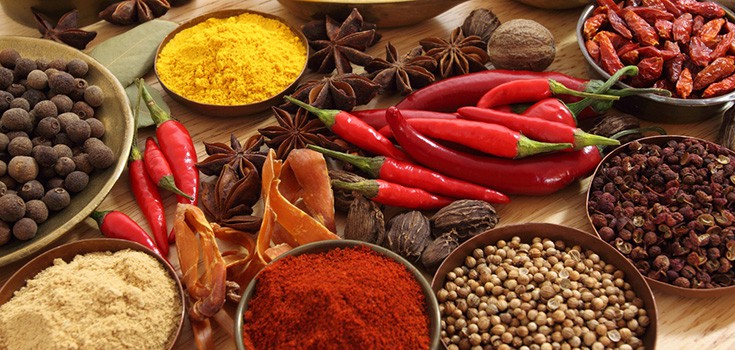Cancer Fighting Foods – 6 Anti-Cancer Foods

Could it be that cancer rates are so rampant because people are simply not eating the right foods? While there are many factors that play into the development of cancer, diet and lifestyle habits (such as smoking) play a significant role. One of the easiest ways to help protect yourself is by regularly consuming what researchers deem cancer fighting foods – here are 6 anti-cancer foods you should never forget about.
1. Turmeric (Curcumin)
Among the most researched cancer fighting foods,
Researchers at UCLA found that curcumin is the component harnessing the ability to actually block cancer growth. Not surprisingly, the cancer-fighting ability that
2. Papaya Leaf Extract
As reported by University of Florida, a study conducted by researchers Dr. Nam Dang and colleagues documented papaya’s powerful anticancer properties and impact against numerous lab-grown tumors.
The research revealed that an extract from dried papaya leaves exhibited significant anticancer effects against a variety of lab-grown tumors, including those of the liver, lung, pancreas, cervix, and breast. The potency of this anticancer effect increased with higher doses of the extract.
Published in the Journal of Ethnopharmacology, the study also highlighted that the papaya leaf extract enhances the production of Th1-type cytokines, molecules crucial for regulating the immune system. This dual action of the extract, both as a direct antitumor agent and as an immune system modulator, hints at innovative cancer treatment strategies.
Remarkably, the papaya extract showed no toxic effects on normal cells, a significant advantage over many conventional cancer treatments.
Another study also concluded with positive results.
3. Ginger
Adding another to the list of cancer fighting foods, ginger, a cousin spice of super anti-cancer substance turmeric, has been studied for its ability to shrink tumors.
The subject of one study based out of Georgia State University, whole ginger extract was revealed to shrink prostate tumor size by 56% in mice.
The anti-cancer properties were observed in addition to ginger’s role in reducing inflammation as well as being a rich source of life-enhancing antioxidants. You definitely won’t want to disregard the health benefits of ginger.
4. Garlic
For centuries, the benefits of garlic have been experienced by many cultures for the treatment and prevention of disease; garlic’s status as one of the cancer fighting foods is perhaps one of the most notorious.
Allicin, the active component, selectively targets cancer cells while leaving healthy cells alone,. Make no mistake, healthy people who incorporate garlic into their diets have a decreased risk of developing cancer.
‘Even though doctors cannot detect where metastatic cells have migrated and lodged themselves,’ says Prof. Mirelman, ‘the antibody-alliinase-alliin combination should chase them down and destroy them anywhere in the body.’
The production of something known as hydrogen sulfide is also credited for garlic’s anti-cancer properties. Garlic contains organosulfur compounds (OSCs). When these compounds are broken down in the body, they can release hydrogen sulfide. This release has been linked to many of the health benefits attributed to garlic.
5. Foods Rich in Lycopene (Tomatoes and More)
A study in the Journal of the National Cancer Institute specifically looked at the effects of lycopene on angiogenesis in prostate cancer. They found remarkable results, determining “lycopene was associated with reduced risk of lethal prostate cancer and with a lesser degree of angiogenesis in the tumor.”
So, what foods give you the most lycopene? Tomatoes are a great source and are widely available. Other good sources of lycopene include watermelon, guava, papaya, red bell peppers, asparagus, mango, and red cabbage.
6. Cruciferous Vegetables (Broccoli)
Cruciferous vegetables like broccoli and cabbage are rich in sulfur-containing antioxidant compounds shown to fight cancer. Research from Linus Pauling Institute shows that these compounds work to fight carcinogens (cancer-causers) before they have a chance to damage DNA.
A diet rich in foods like these may not only reduce your risk of cancer, but other lifestyle-related diseases as well, helping you to reach optimal health.
Beating cancer with nutrition may just be possible; you simply must recognize which foods to consume and which foods not to consume.

thanks for this great information